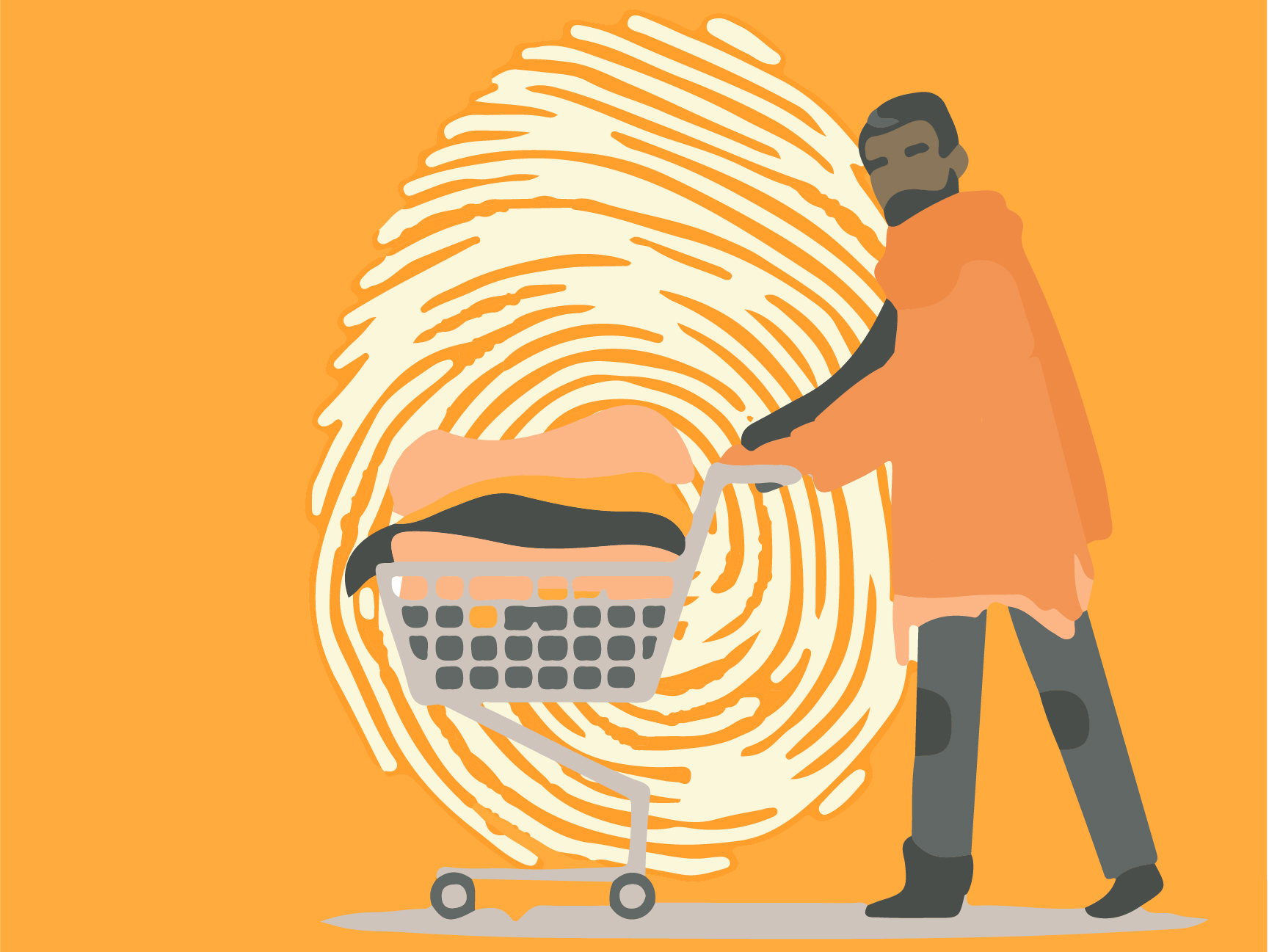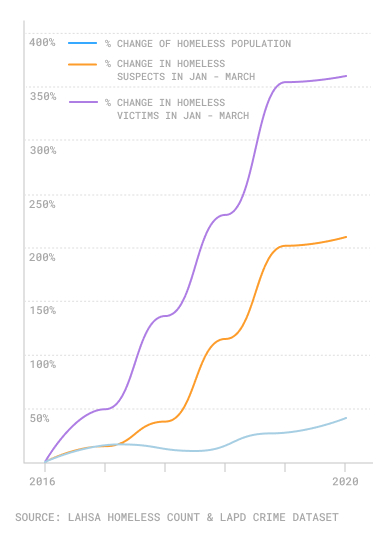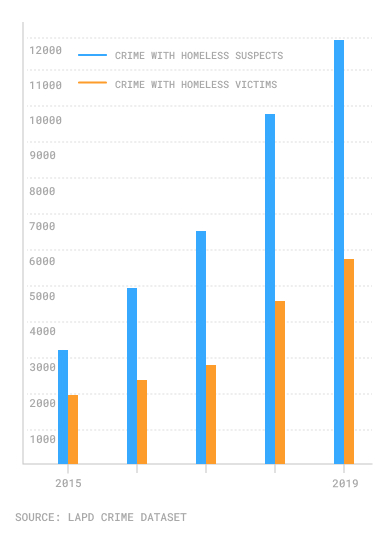LA’s homeless crime epidemic
 Design by JD LeRoy
Design by JD LeRoy
The number of people experiencing homelessness in the City of Los Angeles is rising rapidly. But the number of homeless people who become victims of a crime is rising even faster.
The situation reflects the devastating combination of a regional lack of affordable housing with the extreme social and emotional vulnerability of people experiencing homelessness.
The homeless population in the city grew for the second consecutive year, jumping 14.2%, to 41,920, according to the annual homeless count released earlier this month, conducted by the Los Angeles Homeless Services Authority. That’s also a more than 60% spike since 2015, when 25,686 people were without housing. (The new LAHSA count was conducted over three nights in January, and does not reflect the impact of the COVID-19 pandemic).
As stark as that rise is, it pales in comparison with the increase in homeless crime victims. According to Los Angeles Police Department data, 415 people experiencing homelessness were victims of a crime in 2015. By 2018, that hit 890, a 65% boost over the previous year. Last year, the figure reached 1,252 victims, up more than 200% from the level in 2015.
Homeless population vs. increase in homeless crime suspects and crime victims
[media-credit name=”Designed by Kiera Smith” link=”http://www-scf.usc.edu/~kierasmi/acad275/resume.html” nofollow=”true” align=”aligncenter” width=”391″] [/media-credit]
[/media-credit]
Commander Donald Graham, the LAPD’s homeless coordinator, noted that the numbers reflect how exposed people living on the streets are to violence and abuse. “Housed individuals have the ability to lock their door, but all homeless people have is the ability of a tent flap to resist a box cutter,” said Graham.
[Related story: Skyrocketing number of complaints about homelessness.]
The rise in crime by suspects who are experiencing homelessness is even more pronounced than the figure for those who are victims. According to LAPD data, in 2015, 621 homeless individuals were listed as suspects. In 2019, that number reached 2,824, an increase of 354%.
Annual rise in homeless crime victims and suspects

The top two crimes last year for which people experiencing homelessness were both suspects and victims were aggravated assault with a deadly weapon, and battery. Robbery was the third most common crime against people experiencing homelessness.
The worsening crime figures come as the relationship between the police and the homeless community is receiving greater scrutiny. That was highlighted during the recent protests against police brutality in Los Angeles last month. A coalition of homeless rights advocates sued the LAPD for shooting a homeless man in the eye with rubber bullets.
Pete White, the founder and co-executive director of homeless rights advocacy group the Los Angeles Community Action Network, said the city is pouring dollars allocated for homelessness into the wrong place. According to an LA CAN audit of the city budget, White said, nearly 87% of the $100 million earmarked for homelessness went to the LAPD.
“If that doesn’t say it all, I don’t know what does,” he said. “On the one hand, you hear this rhetoric that they’re looking for humanitarian and healthy ways to make sure houseless people are okay. And on the other hand, the resources that are allocated go to the police department. And last time I checked, the police department wasn’t providing housing.”
Data from the LAHSA homeless count indicates some of the challenges to altering the status quo. The report revealed that 59% of those living without shelter cited “economic hardship” as a reason they lost housing. More than 14,000 homeless individuals were reported as suffering from “severe mental illness,” pointing to the inadequacy of the safety net.
White asserted that the negative effects of homelessness are not limited to crime.
“The social costs of homelessness range from criminalization of these populations, all the way to health effects,” he said.
How we did it: We compared yearly totals from recent LAHSA homelessness counts for the City of Los Angeles with publicly available LAPD data. Want to know how your neighborhood fares? Or simply just interested in our data? Email us at askus@xtown.la.






